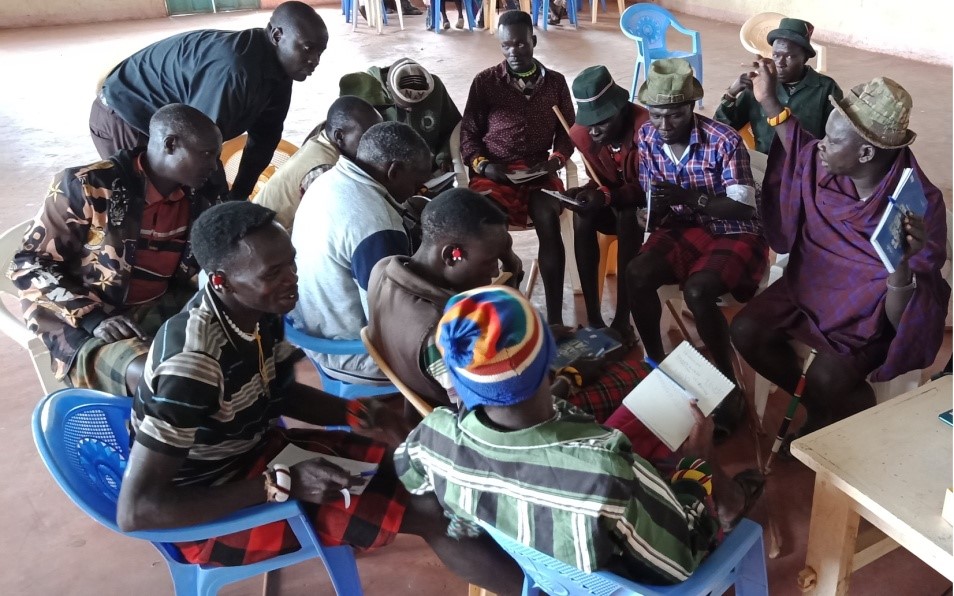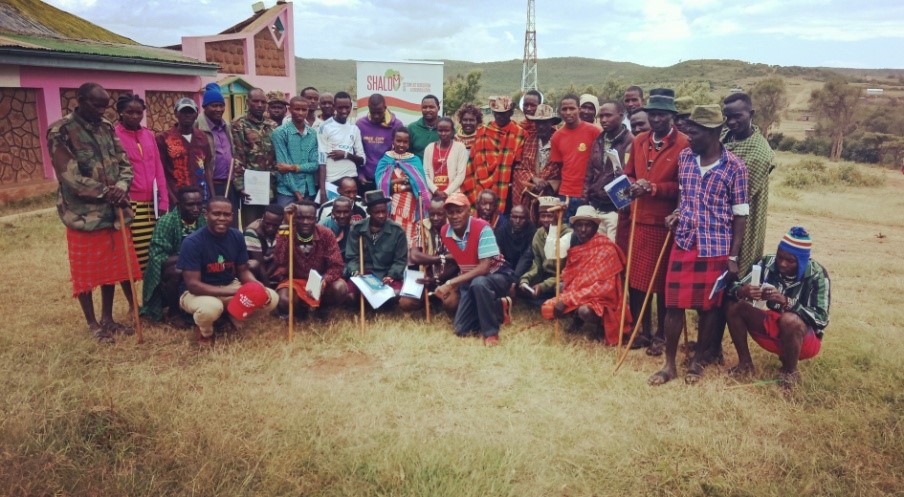By: Arthur Magero MA: Program Officer and Kennedy Odour: Project Assistant
The strained relation between the Samburu of Morijo, the Pokot of Malaso and the Turkana of Marti in Samburu County is understood by their rivalry and tension as a result of the following underlying causes; scarcity of resources, marginalization, insecurity, sense of identity and longstanding animosity (SCCRR Research Department). This has held them in violent conflict resulting in loss of lives, destruction of property, displacement of families, closure of schools and injuries to human person and livestock. Shalom Center for Conflict Resolution and Reconciliation (SCCRR) through its peacebuilding program has activated building activities in Morijo, Samburu County. The intervention to this conflict has involved all the communities and schools within the area with the view of safeguarding peaceful coexistence between the three communities.

Peace committee members from Pokot community participating in a group discussion during an inter-community dialogue meeting held in Morijo-Samburu
SCCRR is capacity building the communities in understanding and setting up Conflict Early Warning for Early Action Mechanisms, and establishing POTUSA (Pokot-Turkana-Samburu) which is enabling communities to prevent conflict between each other with the focus being on a program grounded within the communities.
Currently, Shalom is conducting training with 36 community facilitators; 12 from each of the three ethnic communities to strengthen their capacity on facilitation of inter-community dialogues and problem-solving, inter-ethnic project development. There is a growth in the number of the Samburus, Pokots and Turkanas who have been attending workshops and for the first time people are seeing improved relationship and interaction. It was amazing in the month of August 2018 and a tangible outcome of SCCRR’s work to see the three communities share a place to eat and sleep during an inter-ethnic dialogue training workshop held in Morijo. Indeed, as Ronald Reagan puts it “peace is not the absence of conflict; it is the ability to handle conflict by peaceful means”. Shalom also continues to support peace education in schools as a way of establishing sustainable peace by building a culture of tolerance and peaceful coexistence for development, supplying desks, teaching materials, solar lighting and construction materials.
The Member of County Assembly and SCCRR’s Peace Group Leader Hon. Paul Leshimpiro in an interview echoes the need for early warning systems and action by stating “the problem is not a necessity of early warning, but for early action for sustainable positive peace”. He went further to laud and thank Shalom for the good work of building the capacity and creating the bridges of peace among the three communities. He also said that, ‘the work done by Shalom has created a peaceful environment for us as leaders to reach out to their people and facilitate communities’ future development’. He emphasized on the importance of the County Administration to understand and believe in peacebuilding activities by owning the process and participating in peace activities.

Members of the peace group from Samburu, Turkana and Pokot pose for a group photo with Shalom staff after a two day community dialogue training at Morijo.
Shalom’s intervention approaches have immensely contributed towards restoring peace in Morijo area by involving the leadership and the three communities in determining their own future towards peace. The strategy of engaging the local leadership and the communities is to increase ownership of the peace process where communities begin to see the benefits of peace – peace as an investment by us and for us where all the three communities are important in achieving this hence an approach that is founded on sustainable peace.

